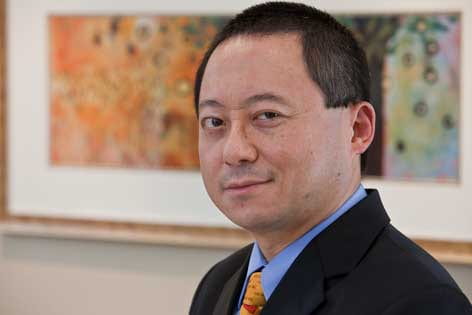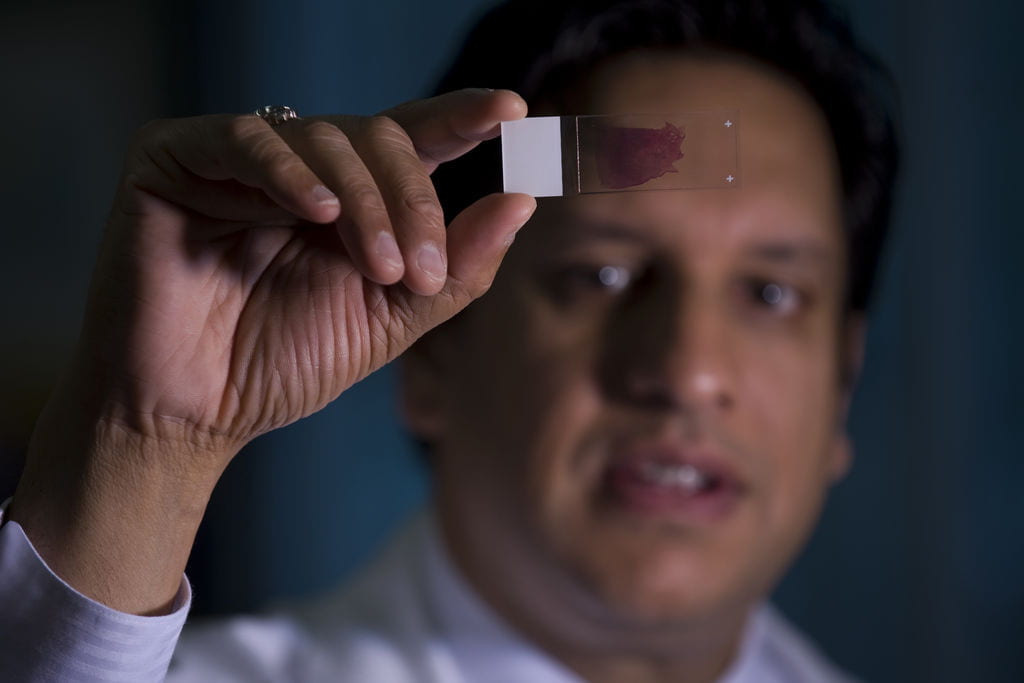Taking aim at deadliest cancer
UCI non-small cell lung cancer study highlights advances in targeted drug therapy.

Each year, lung cancer kills nearly 160,000 Americans, more than breast, colorectal, pancreatic and prostate cancers combined. Its incidence rate is among the highest of all cancers, and its five-year survival rate is among the lowest.
But – despite a lack of research funding and attention – progress is being made, highlighted by treatments now being tested at UC Irvine’s Chao Family Comprehensive Cancer Center. Dr. Ignatius Ou has several clinical trials under way that target genetic mutations in non-small cell lung cancer tumors, which are prevalent among patients who have never smoked.
“The advances in clinical treatment of lung cancer over the last three to five years are phenomenal,” says Dr. Edward Nelson, UCI’s interim chief of hematology/oncology. “It’s comparable to breast cancer: Thirty years ago, we had little to offer patients other than surgery and radiation, and now there are numerous therapies that can profoundly increase survival.”
He says researchers and clinicians are finding that every tumor is different – there’s no one-size-fits-all treatment for any type of cancer.
“Even tumors that look exactly the same may not have the same set of mutations that make them grow,” Nelson says. “The key is finding the genetic pathways that control the tumor’s growth and having agents targeted to those pathways that can block a tumor cell’s ability to proliferate.”
UCI is one of seven centers studying whether one such agent, the drug crizotinib, can effectively slow, stop or reverse growth in advanced non-small cell lung cancer tumors by targeting a genetic mutation that causes uncontrolled tumor division. Trial participants all tested positive for a mutation in the anaplastic lymphoma kinase gene.
According to the findings, reported Oct. 28 in the New England Journal of Medicine, tumors disappeared or shrank in 57 percent of patients. They ceased growing in another 33 percent. The response rate to the current standard of care for advanced non-small cell lung cancer is about 15 percent.
“For the majority of patients, the treatment right now is chemotherapy plus targeted therapy in those who are eligible,” says Ou, who has a Ph.D. in cellular and molecular biology. “In the future, with the advance of personalized medicine, we hope to be able to identify specific genetic changes in lung cancer and treat patients with specific inhibitors that can improve survival rates and quality of life.”
The journal article includes data from 82 participants in Phase 1 of this study, sponsored by the pharmaceutical company Pfizer. They ranged in age from 25 to 78, with 76 percent of them nonsmokers.
Ou treated 15 patients in UCI’s Phase 1, most from Los Angeles, Orange and San Diego counties. One person came from Arizona each month for therapy and assessment. People are currently being enrolled in Phase 2 and 3 trials for crizotinib.
“Dr. Ou is an example of a dedicated scientist and outstanding physician who is working hard to find ways to improve the lives of cancer patients,” Nelson says.
According to the National Cancer Institute, targeted cancer treatments are more selective for tumor cells, so they may harm fewer normal cells, reduce side effects and improve quality of life.
More than two dozen lung cancer trials are under way at UCI. Nelson says similar work is being done with acute leukemia and colorectal, pancreatic and liver cancers.
As a university medical center with an NCI-designated comprehensive cancer center, UC Irvine offers the community access to leading-edge clinical trials unavailable anywhere else in Orange County. Interested candidates should call 714-456-6241.

